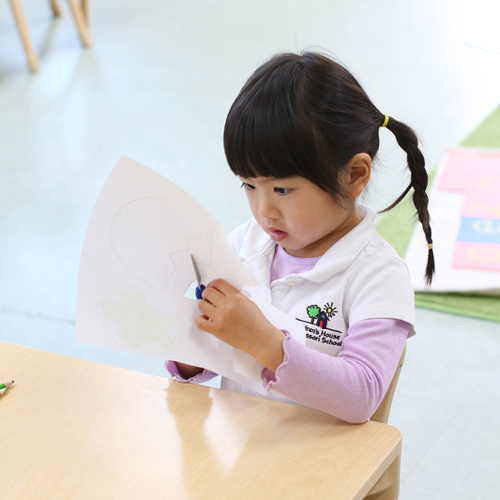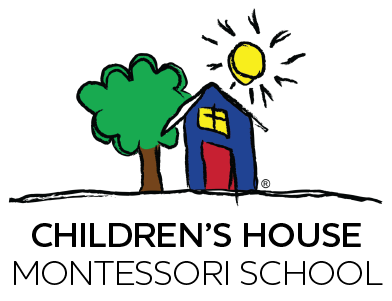Modifying the ways we praise or acknowledge children’s work and efforts is often one the biggest challenges for adults embracing the Montessori philosophy. It’s a natural impulse to feel our own sense of pride and accomplishment when we witness children’s progress and achievements – in the classroom and at home. However, imposing our emotional reaction on the child can disrupt their focus or detract from their own inner sense of accomplishment. Instead, we learn to hold our tongues and wait to react. We want to allow children the time and space to feel their own feelings and revel in their own ability.

Monitoring and actively managing the words we use with (and around) our children is important. As they are learning to navigate the world, we adults provide context and meaning for the words we add to their vocabulary. When we are quick to react or praise children, they become accustomed to that and learn to expect it. The unfortunate consequences of this expectation are manifold. Initially, they may seek approval or recognition for every instance of the action or for increasing types of behaviors. Over time, this expectation generalizes into a need or desire for external validation or appreciation.
Of course, it is always nice to have our efforts recognized, but if we are only doing things for that external gratification, our motivation will quickly wane or become limited to those tasks or behaviors associated with external satisfaction. This is particularly damaging to young children because they are born into this world with such strong internal motivations. Children are naturally curious and are so interested in the world. One of the best things we can do for their long term success is to nurture that self-motivation for learning. By supporting their curiosity, we provide the space for them to grow their understanding which builds their self-confidence and independence.
In situations when you could reflexively say, ‘good job,’ consider the real message you’re trying to convey. Are you congratulating them on the amount of effort expended? Maybe you’re encouraging perseverance or you’re impressed by their mastery of a complex task. Taking that extra moment to consider this true thought provides two benefits:
- Your child can see you considering his or her work and thinking of a thoughtful comment, modeling careful thought and word choice
- You provide specific and relevant feedback that encourages a behavior or practice over which the child has control
In particular, we can help build children’s confidence by providing specific feedback about their efforts over their work product. When they show us a piece of artwork, we can admire their own pride in their work, tell them their face and body language shows us they’re excited, or ask them to tell us more about their work or share their thoughts about it. These reactions refocus the work on the child’s feelings, sense of accomplishment, and pride. By describing what we see in them, we also provide them the vocabulary to name and describe their emotions while providing an opportunity for them to elaborate.
As you practice pausing before praising, you’ll likely notice how often you want to say ‘good job’ or something similar. It’s ok. Most of us grew up hearing this catch-all phrase from our very first days. Keep a running list of phrases – or even better, questions – you could use instead. Keep that list on your phone, share it with your child’s other caregivers. Taking the time to write them down will help to fix them in your mind and make it more likely you’ll remember one of them for the next opportunity to not say ‘good job.’ When you successfully implement your new reaction, consider your own feeling of accomplishment! You’re changing your own behavior to better support and encourage your child, and the more often you do it, your own confidence will blossom as well.

Leave a Reply